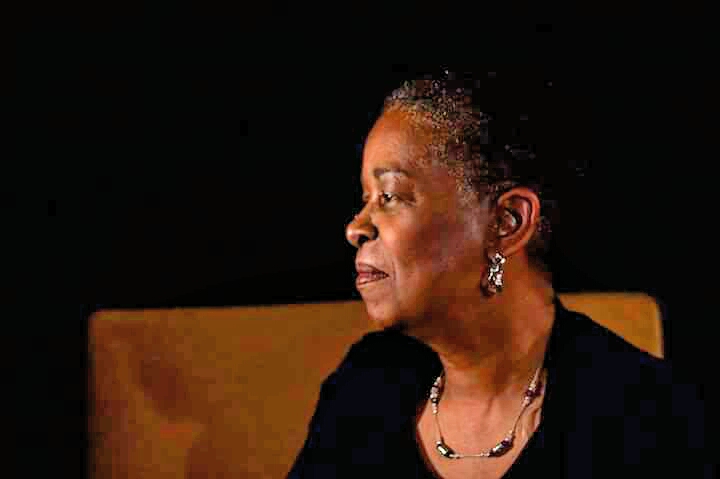on
by Andrea Plaid
With all the buzzy joy about Shondaland’s “Queen Charlotte,” one could be forgiven for not knowing that another queen who’s all about romance walks amongst us Detroiters.
All hail Beverly Jenkins, the long-time resident of the Motor City the undisputed queen of Black romance novelists!
As hyperbolic as that sounds, it’s not hype: Jenkins won many awards, including the 2017 Romance Writers of America Nora Roberts Lifetime Achievement Award and the 2016 Romantic Times Reviewers’ Choice Award for historical romance. She’s also been nominated for the NAACP Image Award in Literature.
A lifelong reader, she loved the library and its wide swath of books. Jenkins started writing for her elementary school newspaper. She attended Michigan State University and eventually worked as the institution’s circulation department. When she and her now-late husband moved to Ypsilanti, she worked as a reference librarian at a pharmaceutical company and started writing romance novels for kicks. A co-worker suggested to Jenkins to look for an agent and a publisher. In 1994, Avon published her first book, “Night Song.”
She’s written over 50 books, quite a few of them historical fiction. Those books are written near the Regency era, the years between 1811 and 1820—but mostly in the United States. When the
Michigan Chronicle asked why sets her past-era stories no earlier than the 19th century, she quipped, “There’s no Wi-Fi or antibiotics.”
Seriously though, she sets her novels during that time because she loves the era. “It’s got so much history.”
“It was so bittersweet for us,” Jenkins said. “We had the great strides that we made in the 19th century. I love the strides made by Black women and men. We had Black men as senators. We were making the country live up to the promises of the Constitution. We had Reconstruction in 1876—then it went downhill.
“But we didn’t give up. When we couldn’t make it in the South, we went West. There was a Great Exodus of us in 1879—and we have small pockets of folks in Kansas, Nebraska, Idaho and Iowa in those places now.”
She said that the way Black history is taught and interpreted now, it seems like we Black folks were free in 1865 and then we vanished until 1965 when “we were rioting in Watts.”
“There’s a whole century where the country doesn’t think we existed. Bur we were making a lot of lemonade out of lemons that America was handing us.”
As for “Bridgerton,” Jenkins said that she hasn’t seen the series or read the books, though she and the author of the series, Julia Quinn, share the same publisher.
When it comes to the color conscious/diverse casting seen on that show and the Broadway musical “Hamilton,” she said that, though both are successful, “What if they turned Malcolm X into a White man and had him played by somebody White? How would I feel about that? I know that initially I wouldn’t be happy about it. So, I guess it depends on your personal interpretation and how you view the history.”
The Chronicle asked Jenkins if the “Bridgerton” franchise and other historical dramas brought more fans to her books. She said that she has such crossover appeal anyway, so she has not experienced any bumps in her readership. However, what she does want is for Hollywood to consider other Black romance writers, especially historical romance writers like Vanessa Riley,
who also pens Regency-era novels “but uses real Black people.” In fact, Jenkins said, Adjoa Andoh, who plays Lady Danbury in both Bridgerton series, did the audio version of Riley’s books.
“If Hollywood can expand to look at any of us, it would be a plus,” Jenkins said.
Beyond the history that Jenkins drops, talking with her is a masterclass of bringing others into the room, of praising other Black women while dropping their names for people to check out.
The Michigan Chronicle asked how books she’s written bridged the romance of Song of Songs in the Bible and her books, Jenkins said that the connection is in her third book, “Indigo,” which still makes money after it being first published in 1996.
“I used the Song of Songs the way that I did because other characters would dog the book’s main character Hester. The man who loved her wanted to clapback on them, so he quoted that book in the Bible.”
What Jenkins didn’t expect was people on the book tour for “Indigo” to tell her Song of Songs wasn’t in the Bible. “Have they even read the Bible?”
When asked about how she felt about being considered the doyenne of Black romance novelist, she replied, “I’m honored by the respect I’m given by everybody. But I also have to acknowledge that I’m standing on some shoulders, too. I’m standing on the shoulders of Sandra Kitt, the first Black woman to have a romance traditionally published, and Elsie Washington, who not published her novels under the name of Roselyn Wells, but is also the first Black woman journalist to work for Life Magazine.”
“Representation matters, especially on the page and visually,” Jenkins stated. “And me, being a woman of a certain age, I grew up when there was no representation, When the first Black romances were published in the early 90s, it was quite refreshing. I read everything: I read romance, science fiction and fantasy. To be able to see yourself—especially in a country that doesn’t believe we people of color don’t love—is important
Join our email list to stay connected.






